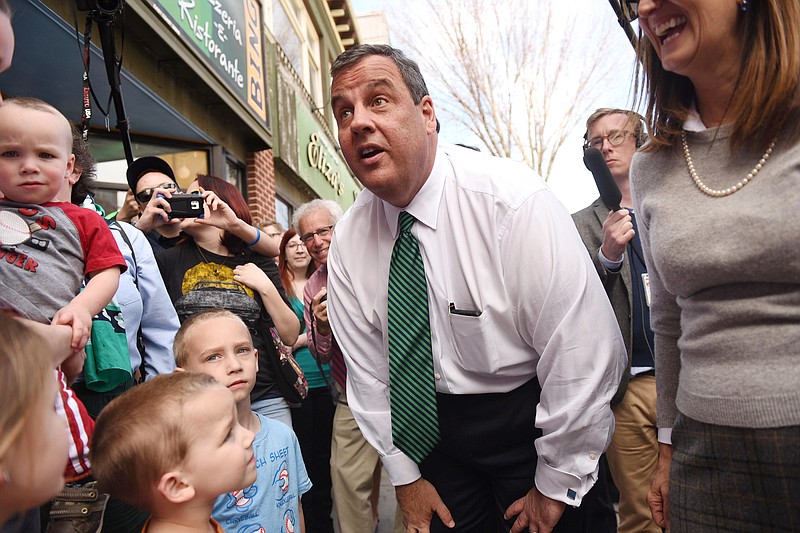It's unlikely that New Jersey Gov. Chris Christie's recent proposals for making changes in Social Security and Medicare will vault him to the front of the pack among possible contenders for the 2016 Republican presidential nomination. They may even set him back.
But give him this. It took an act of political courage to bring up, in the dawn of a presidential race, the now 80-year-old entitlement program whose age is showing.
Social Security annually takes in less in payroll taxes than it pays out and only pays what it does by drawing on its trust fund. Further, its disability trust fund is expected to go bankrupt sometime in 2016, and its basic retirement trust fund has fewer than 20 years of shelf life.
Presidential candidates, including Hillary Clinton who at nearly 68 is eligible to collect Social Security, should be talking about the sustainability of the system, what they will do to make it solvent for the future and how they might modernize it both because people are living longer and because people ought to have an opportunity to opt out of the system and use their money more wisely.
Christie would gradually push the early retirement age from 62 to 64, increase the full retirement age to 69 and increase the Medicare eligibility age to 67. He'd also reduce benefits for retirees earning more than $80,000, eliminate them for retirees with annual incomes of at least $200,000, change the way cost-of-living increases are calculated for Social Security and other benefit programs, and turn Medicaid into a block grant program run by the states.
The future alternative, he said, is massive tax increases.
Speaking in the early primary land of New Hampshire, Christie accused the Obama administration of being unwilling to "address our biggest challenges in an honest way."
While he's right about this president, some previous presidents and past and current Congresses can share equal blame for not coming together for a more sustainable plan.
President George W. Bush seriously addressed the issue with his 2005 proposal to partially privatize the system, an idea that had its merits, but Democrats expectedly and Republicans unexpectedly turned their backs on the idea and let it die. Rep. Paul Ryan, R-Wis., suggested something similar in 2010.
When Social Security began in 1935, it was meant to be just that -- "security" for the elderly -- and never anyone's only means of support. And when it was created, 65-year-olds who received it could look forward to living only to age 77. Today, 65-year-olds can expect to live until 84. But in those 80 years, the full retirement age has only risen to age 67, and that only for those born in 1960 or later.
In addition, the number of people who live to be age 85 or more has increased from .30 percent of the population in 1940 to 1.80 percent in 2010 and is expected to grow to 4.34 percent in 2050. No matter how you slice it, the current numbers can't sustain payouts to future contributors.
Whether Christie is onto something remains to be seen. What is certain is that a national conversation about the annual expense of 66 percent of the nation's money -- taxpayers' money for entitlement programs -- won't take place any earlier than 2017. Oh, candidates will pay the issue lip service, with Clinton and other liberals saying Social Security needs to be expanded -- expanded! -- and Republicans making noises that nip at the edges of reform.
But no one in a presidential campaign will suggest that seniors, who vote in larger percentages than other blocs and vote more heavily Republican, should receive less or wait until they're older to collect. And even though Christie's proposal would exempt current retirees and those soon to be retired, those details of his proposal are likely to be lost in the indignation of the suggestion that anyone should lose a by-gosh penny of what he paid into the system.
If true reform is ever to happen, it will take a group of bipartisan members of Congress like the one that passed unanimously out of the Senate Foreign Relations Committee last week the bill that would give Congress an opportunity to examine and reject the Obama administration's potential nuclear agreement with Iran.
Of course, the wrangling over that issue would look like a nursery school tugging match compared to the work that it would take to reform entitlement programs, but it's work that must be done.
Thanks, Gov. Christie, for at least sticking your neck out.
